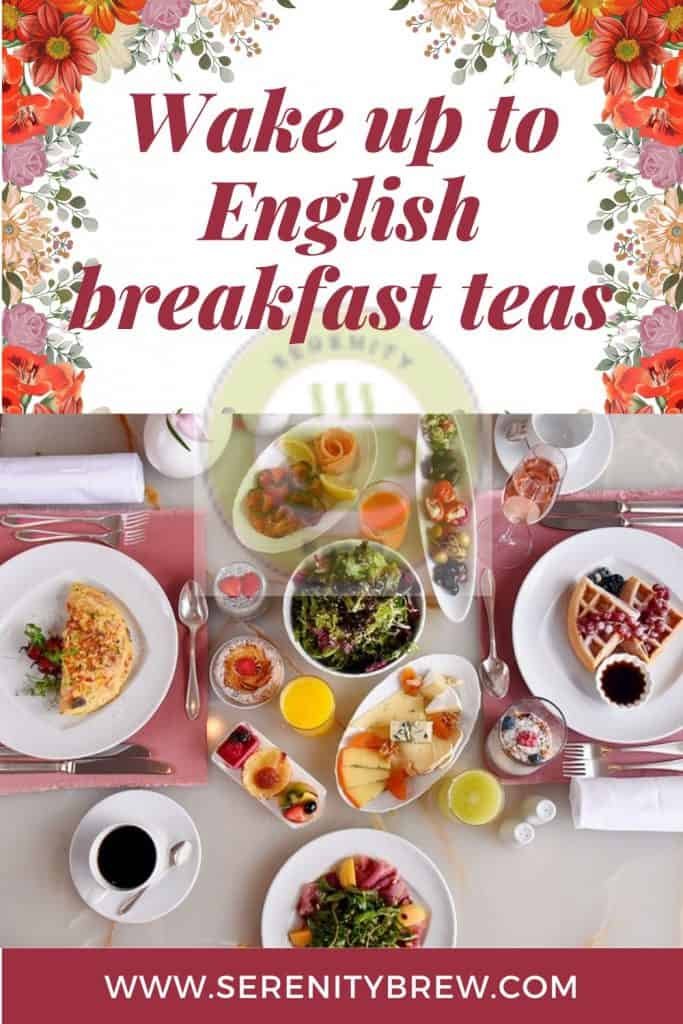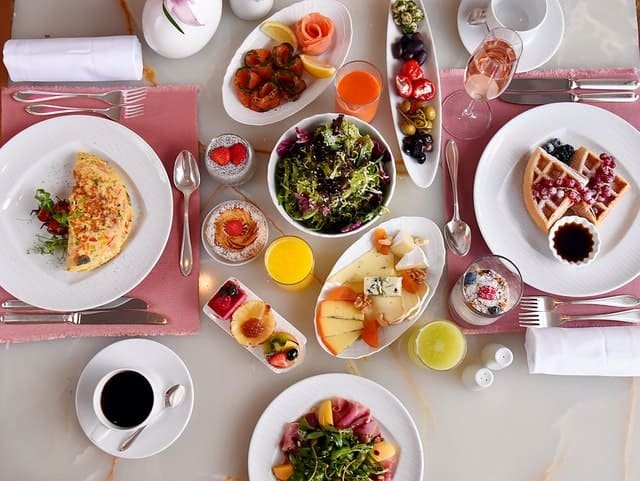
There are few things as English as tea, right? English tea blends, especially so-called breakfast teas, are the drink of choice for millions of British Isles to start their day.
These mixtures usually combine several types of tea, and stand out for being full-bodied drinks with intense flavors, essential factors to combine well with protein and hearty typical English breakfasts. Black tea is the star in these cases and teas with different characteristics are selected and blended.
It is important to say that blends do not have a fixed recipe. Although there are several traditional ways of making, each producer adapts and modifies them to achieve their differential touch.
There are a few traditional varieties of these breakfast teas, including Irish and Scottish. Join us to discover the history behind these aromatic blends and understand how they are different.
Taste of Breakfast Teas
Breakfast teas are based on black tea, a drink with a resounding body and an intense flavor. Black teas are usually attributed a high dose of caffeine compared to other varieties of tea (20mg/100g is calculated), thus being a good option to replace coffee without giving up a comforting and tasty infusion first thing in the morning.
Each variety has its own distinctive characteristics.
English Tea English Breakfast
The English Breakfast is usually a blend of teas from Assam, Ceylon and Kenya, although it can also include other varieties of black tea, such as Chinese Keemun. These varieties are produced at low altitudes, withstanding hot and arid climates, resulting in a strong tea with a hint of malt.
Its color is usually reddish in the cup and its flavor is aromatic and full-bodied. They are usually taken with milk and sugar, making them a consistent and nutritional drink.
Irish breakfast tea
For its part, the Irish Breakfast is a more intense blend, but with less aroma than the English Breakfast. It is usually made from teas from the Assam valley and is rich in caffeine.
Ireland has a great tea making tradition and is, in fact, the country with the second highest consumption of tea per capita. It is quite common for the Irish to consume tea with milk. For the Irish breakfast, due to its intensity, it is a recommended combination.
The truth is that Irish breakfast is a trade name used primarily on the packaging of some popular tea brands like Twinings. It is not popularly associated with breakfast and is drunk throughout the day.
Scottish breakfast tea
Scottish breakfast is usually the most intensely flavored variety of English breakfast teas.
One version of the story says that English breakfast teas originated in Scotland. Some say that they created an intense mixture to compensate for the taste of the soft water (with few mineral salts) of the region.
It stands out for its body and its woody flavor. It is usually made by mixing teas from Assam, Sri Lanka and Africa.
Other famous English blends
There are also other typically English tea blends that fall outside of what are considered breakfast teas.
An example is Earl Grey, a blend of black teas flavored with a citrus fruit, bergamot. Earl Gray combines the rich, malty flavors of its teas with the refreshing, citrusy notes of bergamot. A really delicious and very popular combination in the world of flavored teas.
Another notably famous English tea blend is called Prince of Wales, which contains among its ingredients Keemun tea along with a selection of additional Chinese black teas. The flavor of this tea is smoother and more delicate than other blends, but still has a strong body and a round character.
History of English breakfast tea
Tea in general, and drinking it at breakfast, is an English tradition rooted in time. Although there is no complete consensus on the details of the birth of what the English call breakfast tea, the most famous story indicates that it was in the year 1843 when the later famous name of English Breakfast emerged.
It all started with the move of Richard Davies, an English gentleman from the city of Hull (located about 320 kilometers north of London), to the United States. There, he settled in New York where, with his meager savings, he managed to create a company he called the Canton Tea Company.
After obtaining a loan, he started his new business in a planned and meticulous way, seeking to make a name for himself. To do this, he began experimenting with tea blends. Blending or combinations of teas gradually became his specialty: he began by mixing a base of Chinese Congou tea with a bit of Pouchong and a few wisps of higher quality tea, Orange Pekoe, to provide his floral touch. He named this blend English Breakfast and, of course, advertised it as the most popular tea in all of England.
Little by little, the Canton Tea Company began to grow, always with the help of its exclusive blend of teas. Davies’s competitors were desperate: they had to find the traditional English Breakfast recipe and reproduce it. As Davies’ fortune grew, so did the nervousness of his competitors.
Finally, one of them managed to get hold of a load of English Tea and sent it to China, where they carefully studied the mixture until they could reproduce it. Thus, the English Tea spread first in the region, then throughout the United States, until it reached England and later, Europe and the rest of the world.
Thus, breakfast teas were born, and over time, new English tea blends were developed that received names such as Irish Breakfast and Scottish Breakfast .
As sometimes happens in history, there are conflicting versions about the birth of breakfast teas. While many maintain that it was Davies who invented the first blend, others suggest that it was actually a Scottish tea master named Drysdale who created a particular blend that aroused the curiosity and later the favor of the well-known Queen Victoria, who was responsible for popularizing the drink by the name of Breakfast Tea.
Start the day with a good English tea

Do you dare to replace your cup of coffee with a good English tea for breakfast? They are perfect to start a day with energy and a comforting feeling in the body.
These teas will go well with your breakfast even if it doesn’t consist of eggs, bacon and beans like the traditional English one. Fiance;
